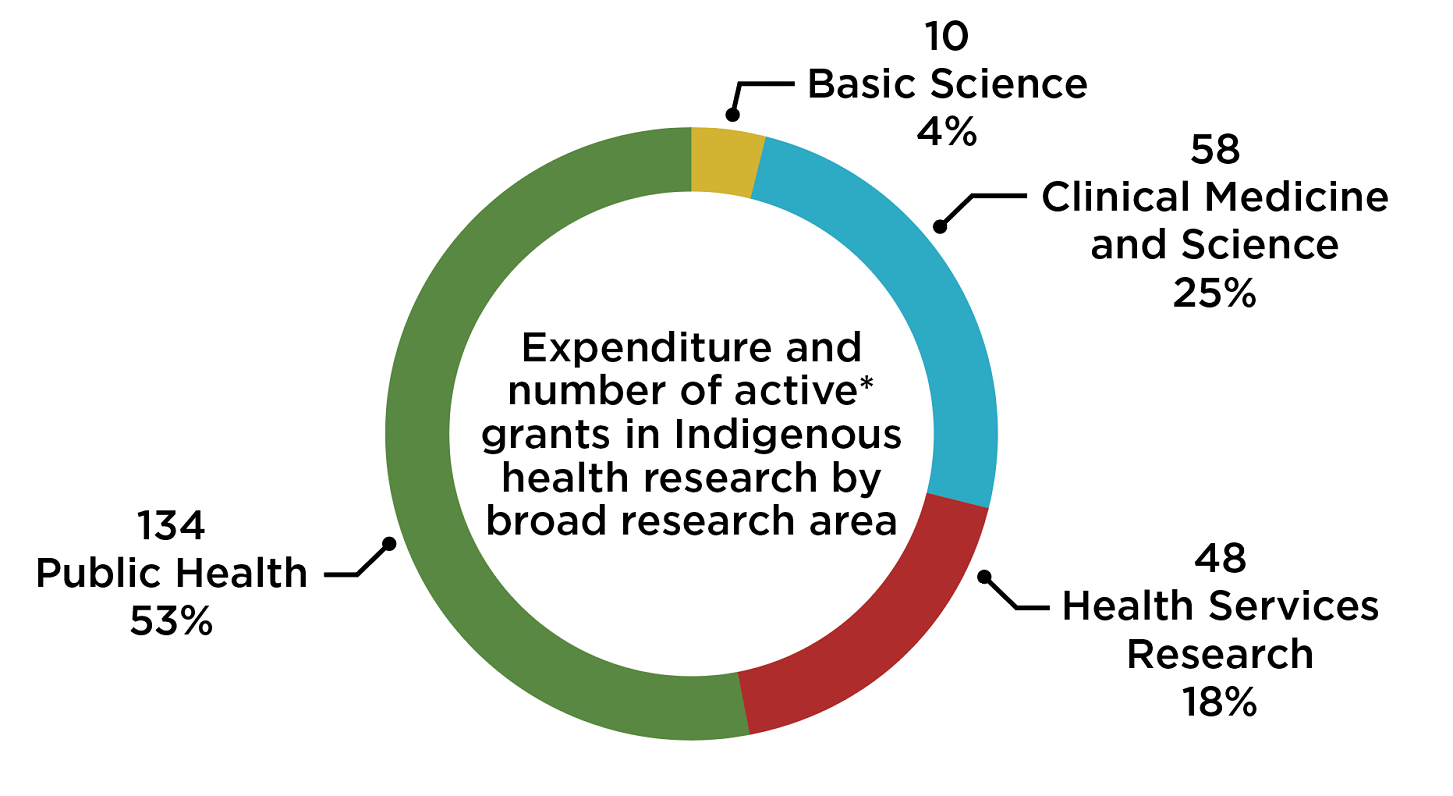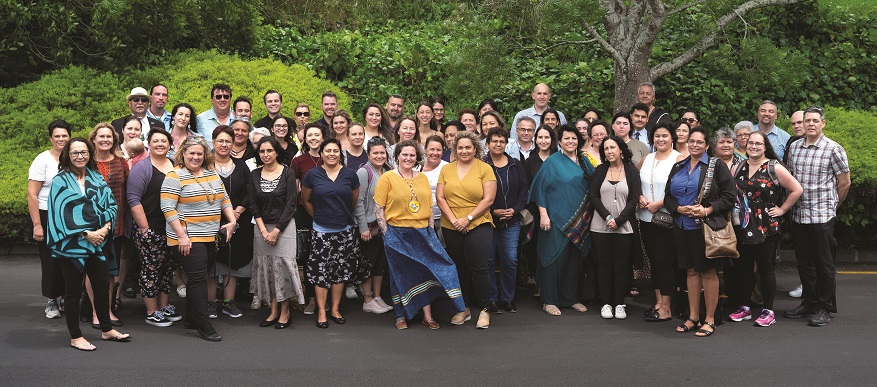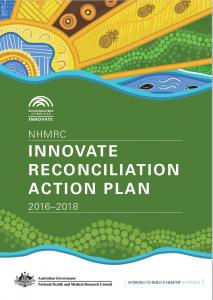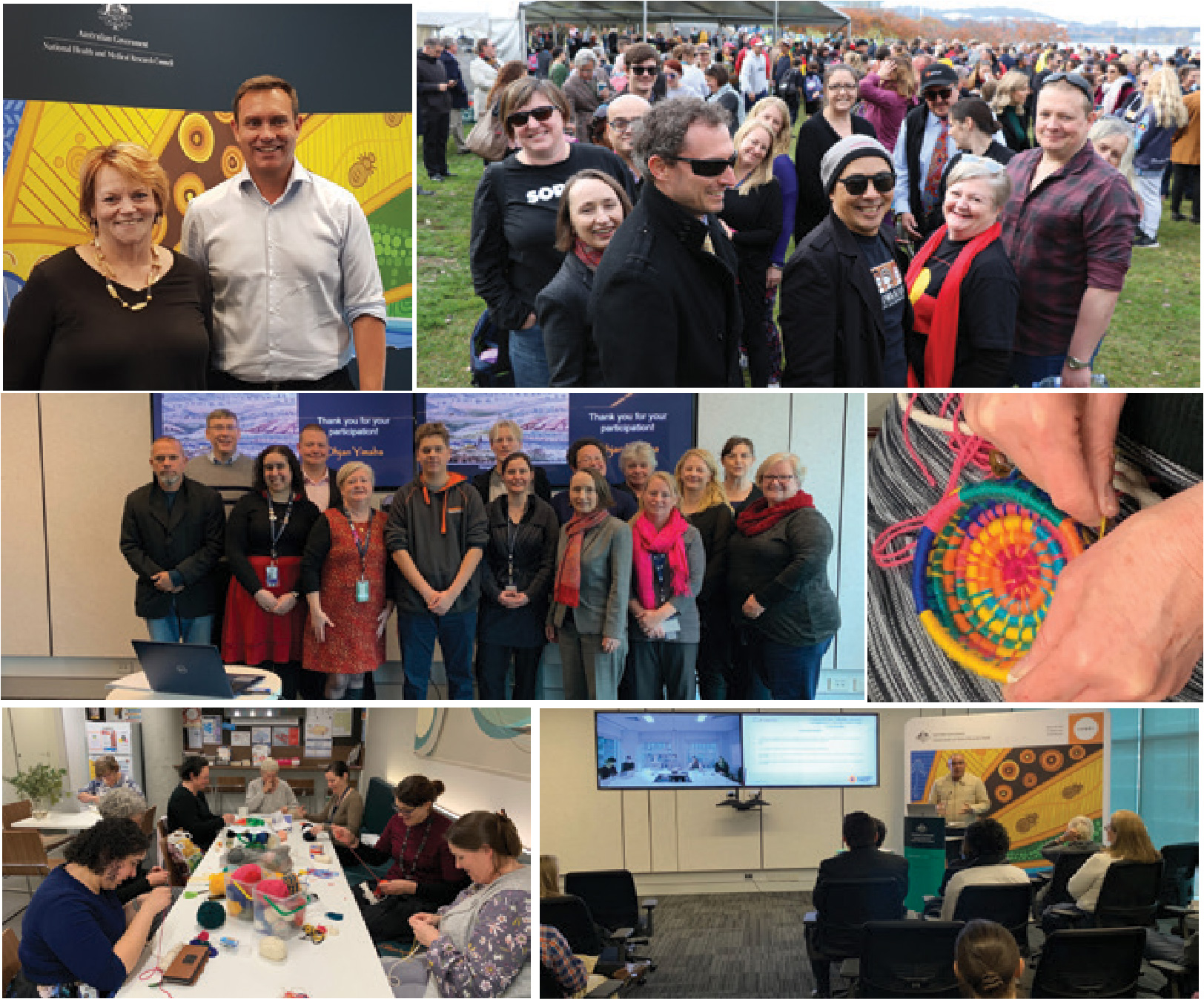The Australian Government is now in caretaker period. During this time, updates on this website will be published in accordance with the Guidance on Caretaker Conventions, until after the election.
Aboriginal and Torres Strait Islander Report Card of Achievements 2019
This is an annual report card focused on the achievements made in 2019 against the three-year Action Plan for Road Map 3. NHMRC continues to work with Principal Committee Indigenous Caucus (PCIC) on all the actions in NHMRC's Road Map 3 Action Plan 2018-21 Triennium

NHMRC is committed to a 5% spend or more of the Medical Research Endowment Account (MREA) on Aboriginal and Torres Strait Islander health and medical research.

PUBLIC HEALTH AND HEALTH SERVICES was the top field of research in Indigenous health research funding with $34,581,446 spent

250
Indigenous health active* research grants

$54,326,082
spent on Indigenous health research

6.0%
funding of the MREA for Indigenous health research
*All grants being paid in 2019
Target Call for Research to form a National Network
-
Establishing a National Network for Aboriginal and Torres Strait Islander health researchers (the National Network) is a key project area for NHMRC in strengthening and building the capacity of Aboriginal and Torres Strait Islander health researchers.
-
The objective of the National Network is to create one inclusive system that brings together Aboriginal and Torres Strait Islander health research groups and their support networks to create a structure that builds the capacity and capability of Indigenous health researchers.
NHMRC is committed to building and strengthening capacity of Indigenous researchers.
The 2019 International Indigenous Health Researcher Capacity Building, Strengthening and Mentoring Workshop was held 2-4 December in Auckland, New Zealand. The aims of the workshop included building capability and encouraging linkages between tripartite partners in New Zealand and Canada.

PCIC is appointed on a triennial basis and provides advice and works with NHMRC Council and CEO on issues relating to guide and direct Indigenous health research. Professor Sandra Eades is chair of PCIC and also a member of NHMRC Council.
NHMRC is committed to building and strengthening capacity of Indigenous researchers. In 2019:

33 NHMRC active* grants were led by Indigenous researchers
165 Indigenous researchers on active* grants were funded by NHMRC


Dr Graham Gee was awarded NHMRC’s Rising Star Research Excellence Award—recognising top-ranked Indigenous researchers in the Early Career Fellowship scheme
*All grants being paid in 2019

Dr Odette Pearson shares her pathway into research
‘I was excited with the thought that research can make a positive difference in our lives and if I could be a part of that I’d be really happy to contribute through my research.’ Read more and other profiles on the NHMRC News Centre website.
NHMRC continues the Tripartite Agreement in international Indigenous health with Canadian Institutes of Health Research (CIHR) and the Health Research Council of New Zealand (HRC).
NHMRC is committed to Reconciliation and our Reconciliation Action Plan sets out the actions to foster respect for Aboriginal and Torres Strait Islander cultures to:
-
build mutually beneficial relationships with communities
-
foster and strengthen the capacity of Aboriginal and Torres Strait Islander health and medical researchers
-
support the employment of Aboriginal people and Torres Strait Islanders in our agency.
Our second Innovate RAP has been submitted to Reconciliation Australia for feedback and is expected to be published in 2020.


- NHMRC offered 3 Aboriginal and Torres Strait Islander students a summer and/or winter Internship.
- NHMRC staff participated in a number of cultural activities. These included;
- Language lessons, walking tours, yarning sessions, Indigenous guest speakers series, weaving group, cultural awareness training, and the JAWUN project.
- NHMRC officially named a meeting room ‘Nummerak’ – the Ngunnawal word for wattle, often used for food and medicines.
Download Aboriginal and Torres Strait Islander Report Card of Achievements 2019